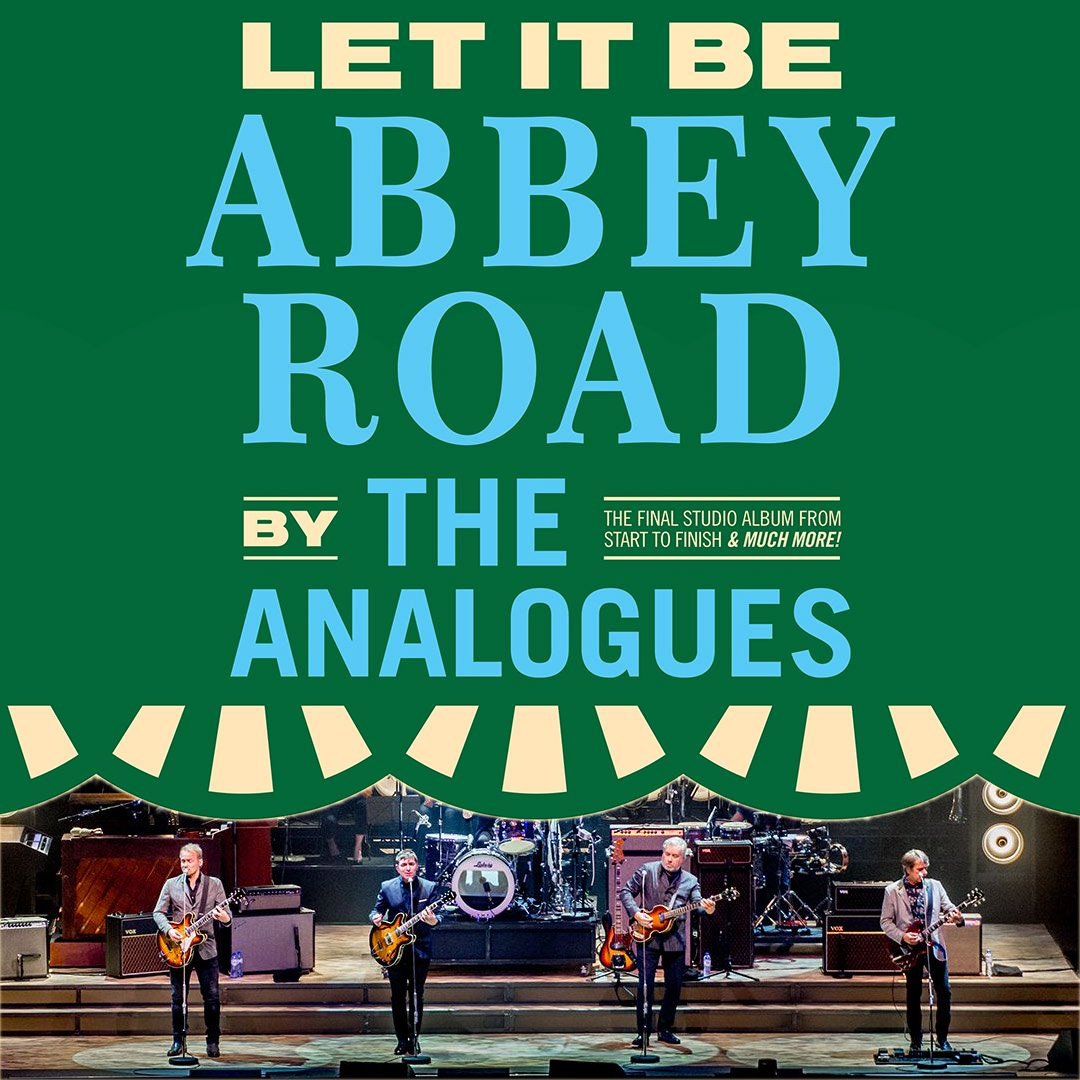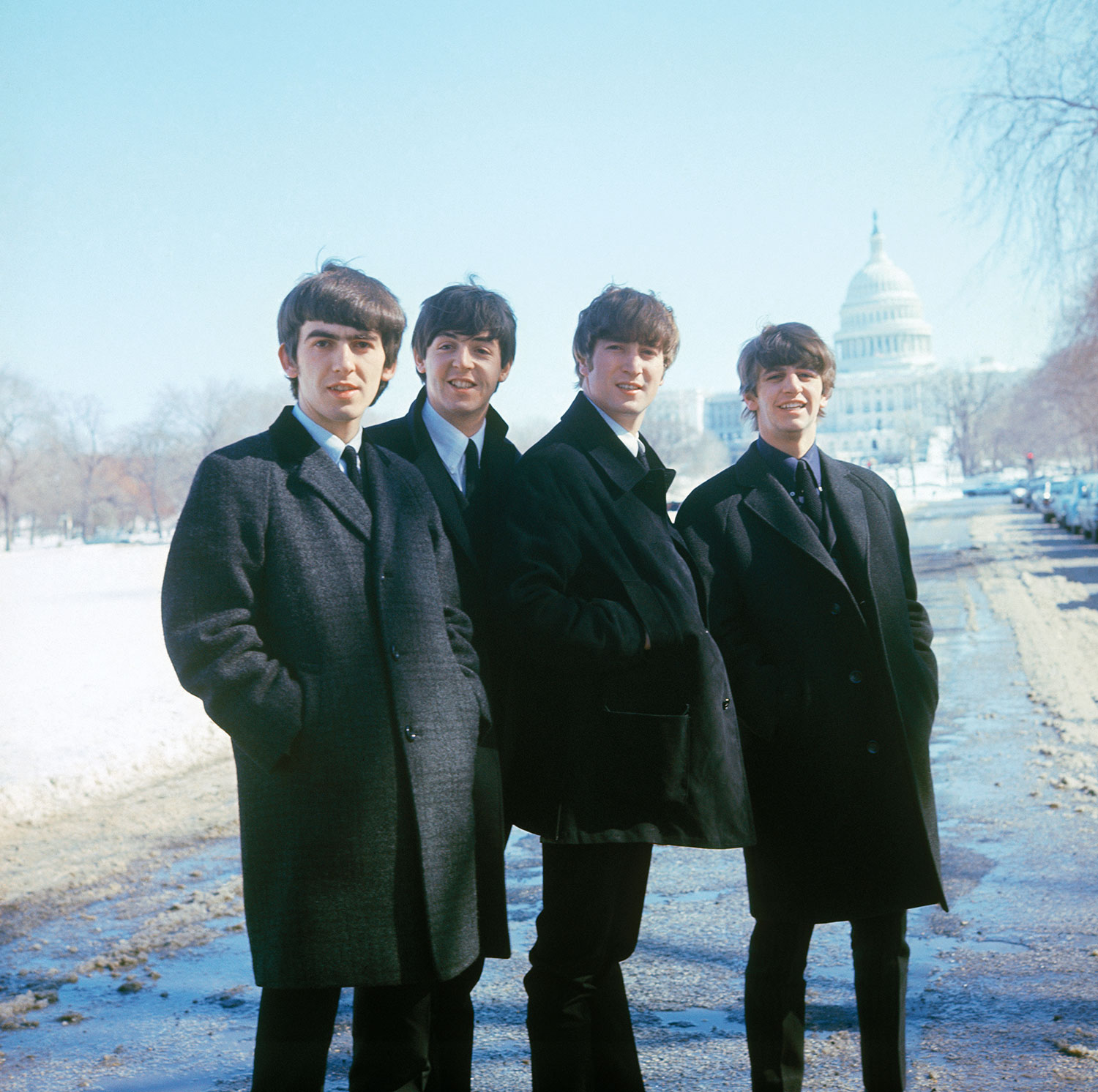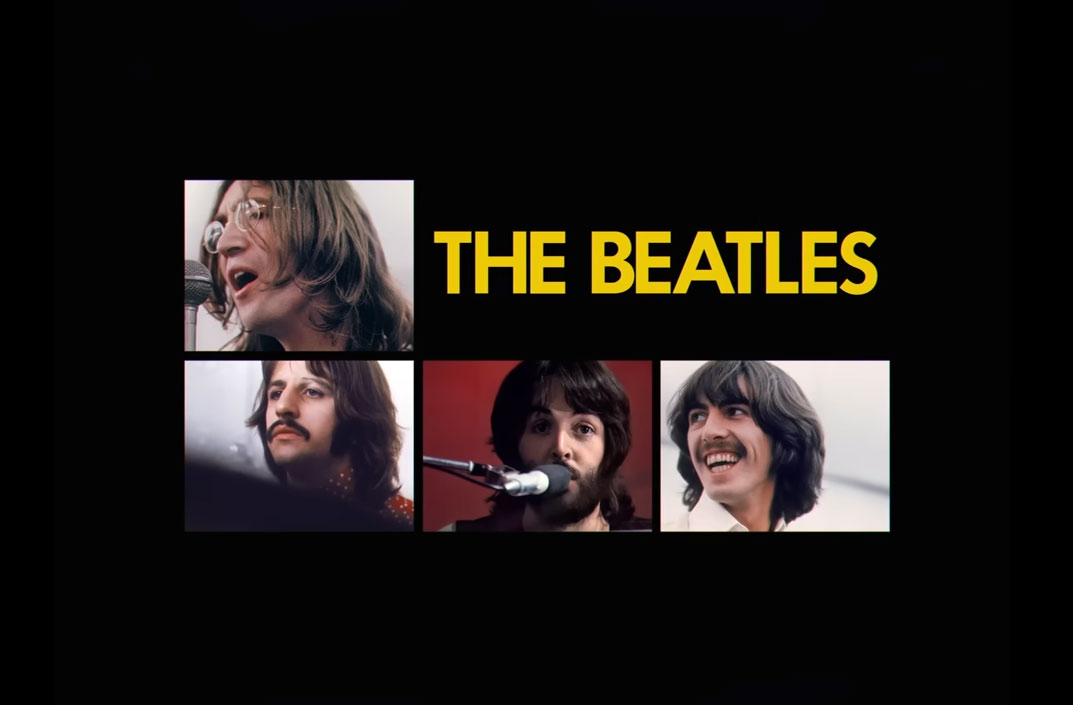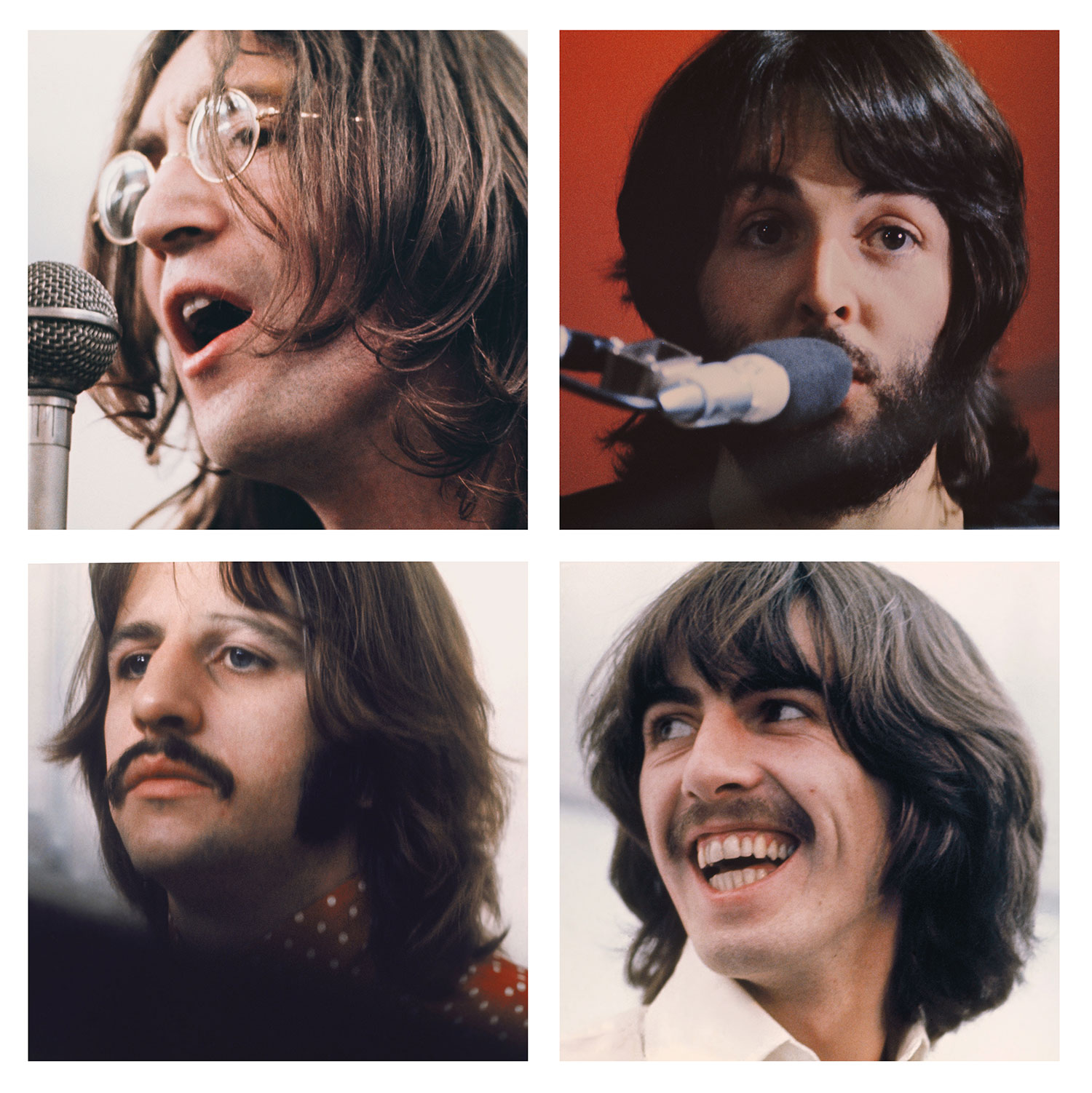Like The Beatles? Meet The Analogues…
The Fab Four tribute band who take it to the next level

The Analogues are a Dutch band who pay homage to The Beatles by performing their later albums live on stage with pin-point accuracy, using analogue and period-accurate instrumentation. They don’t attempt to look like The Beatles, just to sound like them.
In the last six or seven years, they have performed Magical Mystery Tour, Sgt, Pepper’s Lonely Hearts Club Band, and The White Album in full, live on stage. They are currently on tour and next week play a few more dates (including The London Palladium on Monday 3 October) where they will perform Let It Be and Abbey Road. SDE caught up with band member Felix Maginn to find out more…
SDE: Hi Felix, who are The Analogues and what do you do?
Felix Maginn: The Analogues are technically a tribute band, which is not a term we use a lot necessarily and what we do is we play The Beatles’ albums from 1966 to 1970, the records that The Beatles never performed live themselves – ‘the studio years’, so to speak. Obviously, there’s a lot of orchestration and stuff like that on these records which would have made it impossible for them to play at that time. There are quite a lot of Beatles cover bands, but they usually focus on the early Beatles stuff, when they were wearing the suits – but we focus on the later years and what makes us slightly different from other Beatles cover bands is that we play complete albums, so we would do a whole tour based around all of them. So we’ve done Magic Mystery Tour, Sgt. Pepper, we’ve done ‘The White Album’ and Abbey Road.
How many people are officially in the band, because obviously you need a lot of people on stage for certain songs, additional players, string sections, and all the rest of it?
Officially there’s five guys in the band. But then we have two other guys who come in to play some guitar and sing. Then behind us we have four horn players and a string quartet. A lot of these musicians play different instruments and you need a lot of people on stage, so it’s ‘hands on’ usually for everyone. It’s not like “this guy is Paul McCartney and this guy, John Lennon” – it changes quite a lot.
Are you all multi-instrumentalists? You have the flexibility to swap around and play on different instruments?
Yeah, we swap a lot. And some guys are obviously a lot better than others!
The other thing that maybe sets you apart from other Beatles tribute bands is that there’s no ‘fancy dress’ element.
No. We really shy away from that. For us, it’s really about the music. We look at our project like it’s modern classical. So we would we would perform one of the albums and it’s as if you were going to listen to Beethoven, or whatever. It’s not about the guys on stage, it’s just about the music and we try and get as close as possible to the original. That’s what it’s all about.
You make it look so easy. A a song like ‘Blackbird’, for instance. That looks incredibly difficult to play and sing at the same time, but the band member that does that does a brilliant job.
Yeah, Diederik [Nomden] is great. He’s really, really musical. He’ll hear stuff right away, like “wait a minute, that note that the horn players are playing that should be a different note”. Because it’s very difficult… When you listen to a Beatles record, you tend to focus on the whole, but we have to focus on the individual instruments on the track. And sometimes it’s very difficult to hear what’s actually being played. So it gets down to really nitty gritty details, and Diederik is really, really good at just picking out all the little different details.
How did the band go about understanding the arrangements so you can deconstruct them? Was that a case of looking at things like band proper band score transcriptions? Or was it listening to 5.1 mixes? There’s different ways you can do it…
Yeah, there’s several ways you can do it, but in general we focus on the recording; the recording that everyone knows – that’s what we want to hear. You might read something on session scripts, and it says “we had 12 horn players, and we had no couple of flutes” but you don’t hear them. People aren’t interested; what they want to hear is what they know. So what we do, we listen to the track and then we step back, and obviously, the basics of drums, the bass, guitars, piano…. while that’s not always straightforward, normally you can tell what it is. It’s all the little small things in between that are tricky. It’s basically a case of getting a piece of paper and a pencil and writing down bit for bit what is going on and and once you have all that, what we do is we actually record it again, we so we know what we’re doing is right. And only then can we play it. It’s such a lot of work [laughs].
There must be certain bits of information that you just don’t know. Even though The Beatles’ recording sessions have been well documented, there must be effects like whether they’ve used a Leslie speaker or special echos or delays in Abbey Road… where you’re just having to kind of guess.
Yes, some stuff you guess. There are some isolated tracks on the internet that you can find so you have isolated drums, isolated bass, isolated vocals etc. Knowing what they played at the time is helpful, so what type of instruments, what type of amps. We’ve played so much and because we have the equipment, you can try different guitars. You know, is it the Les Paul, or is it the Esquire? And wait a minute, Paul played that solo and he would have played that on a Casino, because those were his guitars… There’s a little bit of ‘Sherlock Holmes’, but eventually we get quite close.
That process, in itself, must be quite enjoyable?
The arguments are quite funny. Because people are saying, “I think it’s this”, “No, I think it’s that”. “What bass is he using?” “Is he using nylon strings”… It’s all those all those things that you drive you crazy, but it is good fun.
Hopefully, anyone who loves music, likes The Beatles, but by digging so deeply into it, what have you learned? Have you come away with some deeper insights?
I think with the four guys together, there was magic, you know, when those four guys played together. I think also the three voices, John, Paul and George, when they sang together, it really is ‘wow’ and that is really sweet. Some things just come along now and again, and they had the luck that everything just fell into place. And then with me, personally, I was always a big John fan, because he was a bit of a rebel and that would be more my thing. But since I’ve really got deeper into The Beatles and learnt stuff, I’ve come to really appreciate Paul McCartney. He is, without a doubt – and you can see it in the movie that came out [Peter Jackson’s The Beatles Get Back] – he is the driving force, usually for that band. He is the best musician, he just has control. John’s a little more off the wall. His strengths are more with his ideas about songs, rather than how he would actually play something.
The thing I always find really impressive about Paul McCartney is that he can play very complicated bass lines while singing a totally different vocal melody. There’s plenty of really good musicians that just don’t have that particular skill. He has so much musicality in that way, doesn’t he?
Yeah, it’s fantastic. I mean, I could never do it. He can split his brain and he can he can really, really do it.
You’ve got this gig coming up at The London Palladium (Monday 4 October] where you’re doing the Let It Be album and Abbey Road. Isn’t Let It Be cheating a little bit, because The Beatles did play that live, sort of, on the rooftop?
Yeah, sure. We do play a couple of songs that they do on the roof, but we try to stick to the stuff that that hasn’t been played, so the songs with the orchestration. The stuff that people never hear, except maybe when Paul might play it.
And what are the challenges with reproducing Abbey Road, which is a classic and sophisticated Beatles studio album?
The first thing was getting a Moog synthesiser, an original one, because we try and get everything as close as possible. And then when you have that, it’ll make one sound and then it will take you maybe about two hours to make a new patch to try and make the other sound. So we had to work out all those sounds that were on the songs on that album. So that was a that was a nightmare. And then we had to integrate a modern Moog with the old Moog that we have, so we could store the presets because I think in ‘Here Comes The Sun’ there are five different presets in that song, and you could never do that [switch presets] on the old one. You could do one setup and that’s it. So that was a bit of a nightmare, but it worked out fine in the end. I think that Moog is on a couple of songs, ‘Maxwell’s Silver Hammer’ and ‘Because’.
And apart from that, there’s a lot of stuff going on. I think the whole the whole medley on side two, when they chopped the tape up and started sticking stuff together, that was quite difficult to work out exactly what was going on. Who was playing what, the percussion stuff and where the guitar sounds changing. The first song, ‘Come Together’, I still think that sounds amazing today. If a band would release that today, it would still sound really good – it doesn’t sound like it’s 50 years old.
It’s such an unusual song that and it’s a good example of a track where it’s not that easy to understand what your ears are hearing, you know, with the echo and John’s handclaps etc.
That’s very true. Jon’s vocal on it is fantastic. And yeah, his original idea was a little different and Paul changed it to that swampy sort of groove that that that they have. They needed to feed off each other to try to get that to get that finished result.
So we can people expect to see an anvil on stage, for Maxwell’s Silver Hammer?
Yes, we have an Anvil! [laughs]. It was actually quite a test to try and find an anvil that would come close to the sound that they used on the, on the album.
Don’t tell me you have been road testing dozens of different anvils? Please don’t tell me that [laughs]
We tested a few. Obviously, when you start, it’s like, “oh, wait a minute, this is too small” or “This is too big, we can never lift it!”. We had this we had this problem before when we play when we played ‘The White Album’, with ‘Everybody’s Got Something To Hide Except For Me And My Monkey’, which has a ringing bell which was a nightmare to try and find the right bell.
Tell me about your the vintage instrument collection the band has? A lot of people might ask if it is really necessary, since even Paul McCartney himself, samples stuff. So how much difference does it actually make?
It makes a definite difference. Like I said before, for me, the first time I played with these guys, it sounded like you were standing in the record, you know, when you play a 1964 Casino through an old AC30 or through an old Fender Twin (both amplifiers) you get that sound. The Beatles only a couple of different amps and the rest is all just a lot of different guitars, so we have a lot of Casinos and we have a Rosewood Telecaster, from 1971 that would have been from a similar batch to what George would have had. But it does make a difference, because obviously we have tried stuff, replica stuff and you hear it and you think “that’s good” but then when you hear the real thing, it’s like wait a minute, it does sound a lot better. I can understand why Paul doesn’t really need to do that, because Paul’s just playing his own songs and he probably just thinks “I want it to sound good”. And he can do whatever, he likes to his own songs. But obviously, we try and recreate that recording that they did.
The other thing with Paul McCartney is you always get the feeling that even though he’s one of the world’s richest musicians, he doesn’t want to take random string sections and other players with him on tour because a) it’s kind of a hassle, B) it costs a lot of money. And that and what that’s one of the things I wanted to pick up with you is the is, that with all the gear and the musicians, how do the economics of something like an Analogues tour work out?
On the production side it is very expensive, because we don’t want samples, we want a real string quartet and real horn players, because, at the end of the day, it does come really close to the sound on the album. And this is the thing that makes it different to all the other Beatles bands that are playing all these great songs – we do come really, really close to the sounds, and that was the mission from day one. And obviously, the project is quite expensive, but if you go to the show and your a Beatles fan, you won’t go home disappointed.
Everyone’s been to a concert where the sound just isn’t very good. For whatever reason, the mix on the night sounds a bit dodgy, whether it’s to do with the venue, or the guy sitting at the desk, or whatever. Having talked about how much effort you put into the recreation how do you make sure that on the night, it’s sounding exactly how it should sound?
We have an amazing crew, and we have a really good sound engineer. We also bring our own PA. These guys work really hard. They’re there in at maybe 11 or 12, and we don’t arrive until five, so that they’re already really busy doing all the setup. Our crew could probably play the show better than we do.
Let’s just finish off talking about a new album you’ve recorded called The Analogues Sideshow. That’s something a little bit different. Tell me about that.
Well, we were obviously we’re stuck with lockdown and no more shows. And I remember sitting with all this equipment and stuff and thinking “Okay, so what are we going to do?” Everyone has a songwriting background, because we all come from bands, so we thought, why don’t we throw in a few ideas that we have around, let’s just record something. So we we ended up recording, using all this old equipment that we have and it turned out quite well. We didn’t do it to sound like The Beatles, but we did it in a style that would have been, you know, maybe 1971 or 1972… something that would have come out at that time, maybe like Badfinger or something like that. So that’s the way we approached it.
Thanks to Felix Maginn of The Analogues who was talking to Paul Sinclair for SDE.
The Analogues play Abbey Road and Let It Be at the London Palladium on Monday 3 October 2022. Tour dates and tickets are here. The Sideshow album is out now.

 Interview
Interview




 Reviews
Reviews


By Paul Sinclair
17